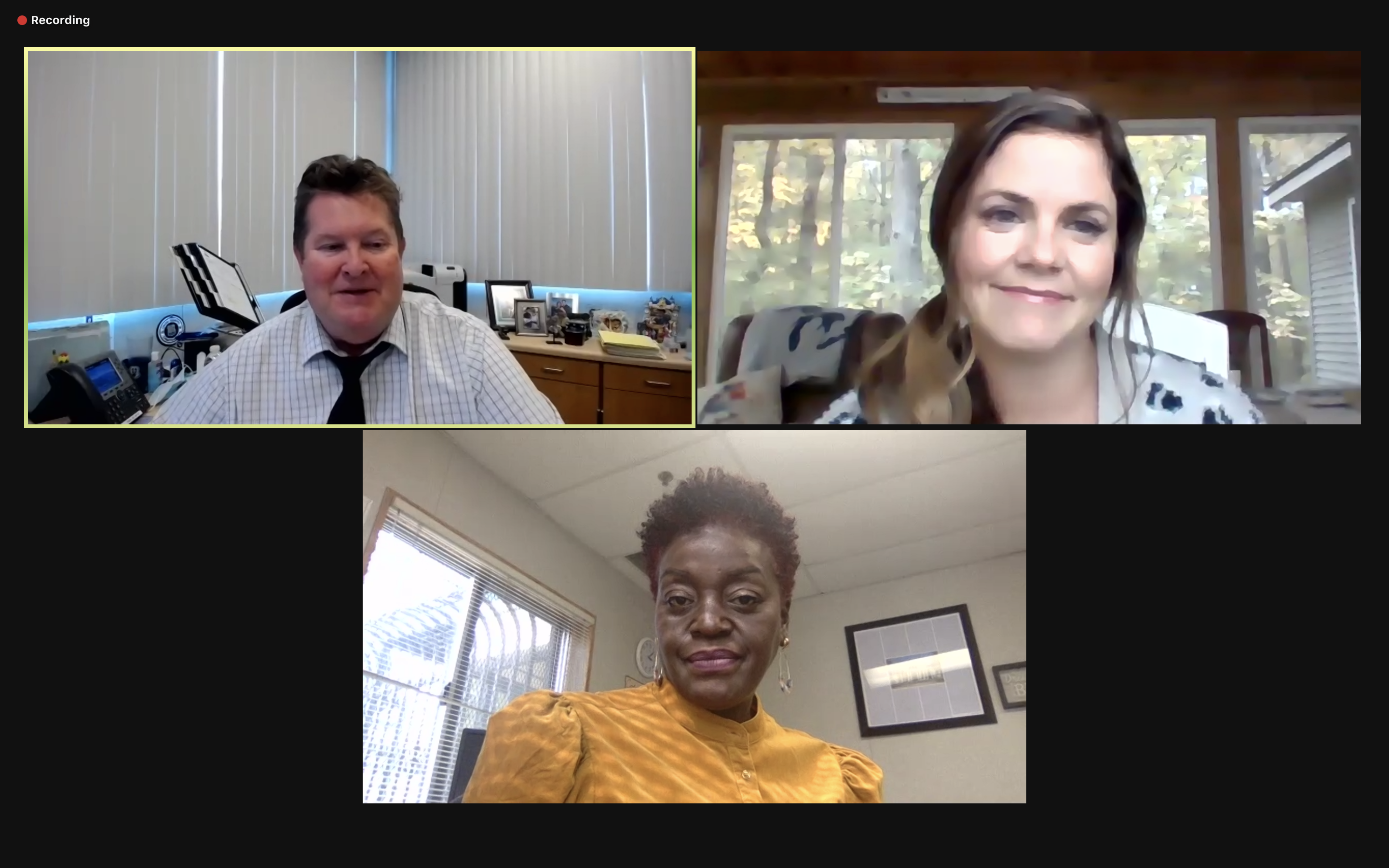Principals are facing extraordinary challenges this school year, from the uncharted territory of remote learning to new COVID-19 safety provisions. While it’s natural for principals to give all of their energy, time and attention to their community, we must also give to ourselves. Self-care is vital for being a positive and effective leader.
Members from AFSA, NAESP and NASSP came together for a Virtual Town Hall on Principal Wellness as a part of our celebration of National Principals Month. Speakers Derrick Lawson, principal of Indio High School; Staci Ross-Morrison, principal of Dewey High School; and Allyson Apsey, principal of Quincy Elementary School offered several helpful tips for managing mental and physical health. You can watch the entire program here.
Try out some of these wellness best practices:
Take care of your body: Studies have shown time and time again that good physical health improves mental health. Set attainable fitness goals, and work out with family and friends to help keep you accountable. Guided breathing and meditation also are excellent tools for maintaining health. “I’m working out every day and it’s alleviating a lot of the aches and pains,” Ross-Morrison said. “We open up most of our staff meetings with meditation or breathing techniques that are coached by my P.E. teacher. I like being able to do fun stuff with the staff and my family that allows us to not think about the work, but remember that we’re people.”
Check in with your team: Some weeks are going to be harder than others. Principals must keep a pulse on your staff’s workload and maintain open channels of communication. Apsey accomplishes this by sending a Monday email with a Google form asking teachers to share how they feel about the coming week. “I’ve had teachers respond saying, 'I can't keep up with grading' or whatever is going on, and I get a sub for them for a few hours,” Apsey said. “They don’t ask for this often, but if those options are available to them and they know that we’re going to be checking in and taking care of them, it makes school a need-satisfying environment.”
Create a list of self-care challenges: If you keep a to-do list, be sure to include tasks that are fun and completely for you. Make loving yourself a part of your daily schedule. This can range from listening to music to reading to writing positive messages. As Lawson shared, “I take time every day to play the piano for a few minutes, something I want to play to feed my own soul."
Pause for the positive: It’s easy to be wrapped up in hardships and confusion. But come what may, educators will get through this pandemic by projecting positivity and lifting our communities. Take a moment, either in an assembly or in your personal moments, to remember the good. “There are so many times when we find ourselves being negative," one participant said. "If we could just stop it and ask people to be positive, that can really change a meeting.”
Learn how to disconnect: We know that the work of an educator is never done. We often feel the need to make ourselves available all the time, but this is not sustainable. Pick a time for you to truly end work each day, and open yourself up to your family. “Since the pandemic started this past spring, it became that we’re expecting ourselves to work 24 hours a day, seven days a week, and we really need to put boundaries in place," one participant said. "An 8 a.m. to 5 p.m. schedule and being offline for the weekend is something that will benefit us all."
Remember your inspiration: We are a part of one of the most taxing, yet rewarding, professions. We are school leaders because we foster environments for molding minds and building character. Every day, remind yourself of why you became an educator. Lawson does this by keeping a folder of appreciation notes from students, families and faculty. He ended the town hall by sharing this inspirational quote from Jeanie Cash, winner of NAESP's National Distinguished Principal Award: “This day has been given to me fresh and new. I can learn from it or throw it away. I will choose to do my best with my thoughts, words and actions. This day will be used and not lost.”

